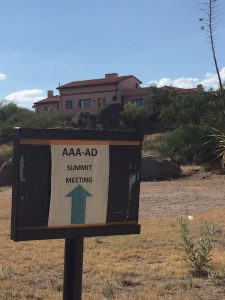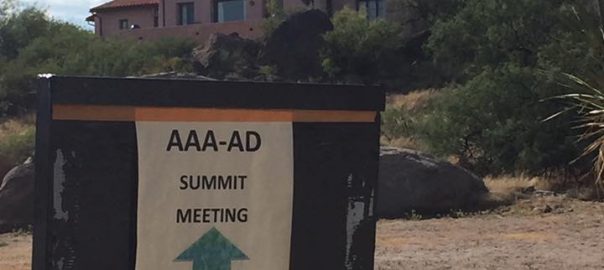This is the third in a series of guest blogs this November from the AAA Archaeology Division Executive Board detailing ideas generated at retreat at the Amerind Foundation this past June. This post is by outgoing AD Secretary, Jane Eva Baxter.
As thousands of anthropologists make their way to Minneapolis to take part in the AAA Annual Meetings, it is worth thinking about the potential ways this organization might help to foster a more robust and inclusive anthropology that actively embraces all of the subfields in intellectual and not just structural ways. When the Executive Board of the Archaeology Division (AD) of the AAA met at Amerind in June, one of the major areas of discussion was how to leverage the resources available through the AAA to create a unique intellectual space among all the professional organizations available to archaeologists.

It’s important to provide a bit of context for this discussion. Most archaeologists do not seethe AAA as their primary intellectual or professional home, but rather are more actively involved in the Society for American Archaeology, the Society for Historical Archaeology, the Archaeological Institute of America and/or the American Cultural Resources Association. The AAA is a secondary or tertiary membership for most current AAA AD members. The AAA is also the most expensive professional organization among these to join, and as Patricia McAnany noted in last week’s post the intellectual ties between archaeology and anthropology were disrupted significantly in the 1990s. These factors have resulted in a substantial reduction in AAA membership by archaeologists. Most of us who have retained our AAA membership have done so because of an enduring belief in the anthropological nature of archaeological inquiry and practice, and because we still find engaging with anthropology outside of our own subfield to be an enriching and nourishing intellectual experience. Continue reading
